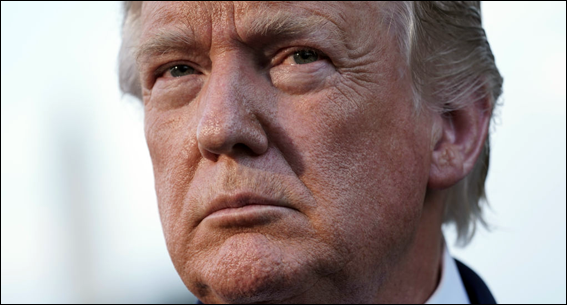
Donald Trump’s $70,000 hair styling bill may be getting all the attention, but there are two unanswered questions from the New York Times expose on Donald Trump’s tax returns.
Question 1: How Much Did Trump Enrich Himself In 2017?
You may recall that back in 2017, Trump spearheaded a massive tax cut bill that was criticized for delivering most of its benefits to the very wealthy. At the time, I led the investigative reporting team that broke open the story of what would become known as the Corker Kickback — and the question is how much Trump was personally enriched by that specific provision, which was designed to benefit real estate investors.
We won a major award for our reporting, but we weren’t able to discern exactly how much Trump and his family may have reaped from the language.
It was a dirty deal — it became linked to Republican Sen. Bob Corker because he is a real estate mogul who decided to support the tax bill after the language was added in. However, it was spearheaded by the Trump White House.
Here’s what we reported at the time:
Republican congressional leaders and real estate moguls could be personally enriched by a real-estate-related provision GOP lawmakers slipped into the final tax bill released Friday evening, according to experts interviewed by International Business Times. The legislative language was not part of previous versions of the bill and was added despite ongoing conflict-of-interest questions about the intertwining real estate interests and governmental responsibilities of President Donald Trump — the bill’s chief proponent.
The Trump organization and the Kushners (the family of Ivanka's husband, Jared) have overseen vast real estate empires, and top GOP lawmakers writing the tax bill collectively have tens of millions of dollars of ownership stakes in real-estate-related LLCs. The new tax provision would specifically allow owners of large real estate holdings through LLCs to deduct a percentage of their “pass through” income from their taxes, according to experts.
Although Trump, who became famous for his real estate holdings, has transitioned into branding in recent years, federal records show Trump has ownership stakes in myriad LLCs.
The new provision was not in the bill passed by the House or the Senate. Instead, it was inserted into the final bill during reconciliation negotiations between Republicans from both chambers.
So the big question that perhaps can be answered from Trump’s tax returns is: Exactly how much did he personally benefit from legislation that he himself pushed?
Question 2: Are We Prepared To Fix This Systemic Problem?
There’s an impulse to try to turn Trump’s tax shenanigans into a story only about Trump — as if he is a singular villain. But while he deserves much criticism for gaming the system, we can’t ignore the fact that it is a system — one that allows wealthy people like Trump avoid paying $266 billion of taxes every single year.
That figure comes from a government report that we covered earlier this year. Here’s what we reported back in July:
The first report came from the nonpartisan Congressional Budget Office, which found that between 2011 and 2013, $381 billion of taxes went unpaid every single year. Couple that data with recent Harvard University research showing that the top 1 percent of income earners are responsible for 70 percent of the tax gap, and you see the full picture: The wealthiest sliver of the population is depriving the American public of about $266 billion of owed tax revenue every year.
There are about 1.6 million households in the top 1 percent — so that means among this income group, the rate of tax cheating is about $166,000 per household.
That tax gap didn’t just magically happen — it is the result of conservatives’ huge cuts to the Internal Revenue Service’s enforcement budget, which resulted in a particularly precipitous decline in audit rates for the super rich. In fact, the $266 billion figure could be an understatement, because the congressional budget analysts were estimating the tax gap that existed before those IRS budget cuts.
Trump’s tax returns are a towering example of both one charlatan’s scammy behavior and a tax system that encourages such behavior.
That leads to a policy question: Are we prepared to not just remove Trump from the White House, but to also change the tax code so that it no longer helps the rich fleece America?
This newsletter relies on readers pitching in to support it. If you like what you just read and want to help expand this kind of journalism, consider becoming a paid subscriber by clicking this link.




